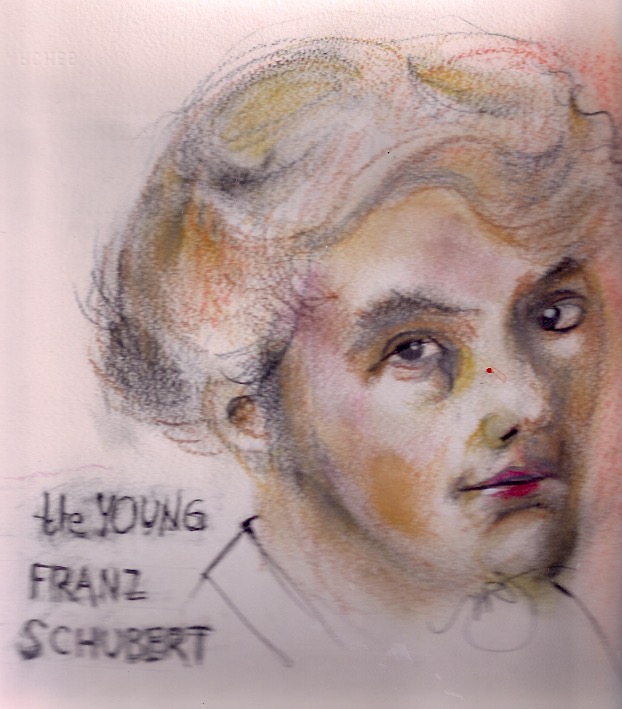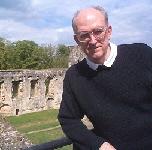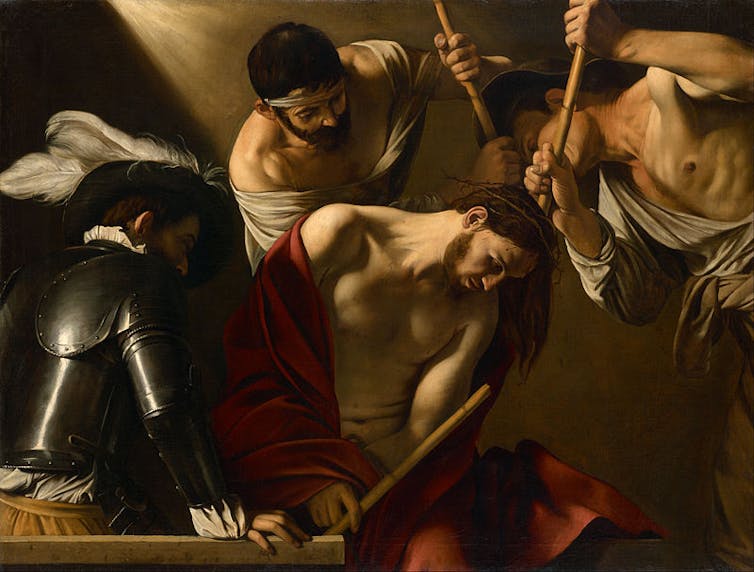Schubert’s two trios: Not a wasted note
In today’s crowded marketplace there always seems to be room for one more album of a favorite composition from the past. The covid virus confinement has seen even more recorded action, replacing the many cancellations of public performances.
The profusion of melodies captured by Franz Schubert in his trios Op. 99 and Op. 100, two of the most frequently recorded pieces in the classical repertoire, have attained the status of earworms, so deeply do these melodies lock onto our consciousness. Today they are among the most popular selections in concert programs worldwide.
In this video the Messiaen Trio demonstrates Schubert’s melodic power.
https://www.facebook.com/watch/?v=531905024366958
Viewers of this music have publicly declared, “It’s not just a masterpiece, it’s a cure.” Another confides, “I cried, and I never cry.”

The grouping of family members brings a special intimacy to performances. Denis Pascal told me, “Our interrelationships are unique. It’s a special dialogue, like another language.” A major force is Denis's wife and mother of their two sons, Marie-Paule Milone, herself a respected international cellist.
And yet family music-making is still a rarity. The duet of Renaud Capuçon and his brother Gauthier have produced superb recordings, and other duos can be found internationally. But the trio phenomenon is more rare. Only the Trio Chung, led by the Franco-Korean Chung Myung-whun, former conductor of the Orchestre philharmonique de Radio France, has made a lasting impact. Chung père performs with his talented sisters, Chung Kyung-wha (violinist) and Chung Myung-wha (cello).
The Schubert trios have gained popular attention since the late director Stanley Kubrick chose parts of the composition for his “Barry Lyndon” period film. As Denis Pascal, founder of the French Trio Pascal, told me, Kubrick and Schubert created an entire era in European history and culture with this combination. (see interview below).
Here is an edited version of my conversation by telephone with Denis Pascal.
How has Covid-19 affected you, your projects, your opportunities ? Do you feel confined, like everyone else?
Yes, the constrictions started in March 2020, a year ago. There were a lot of cancelations and strict confinement. Contacts with students and friends came to a halt. It had a brutal impact but we thought the crisis would be over soon.
And indeed, didn’t controls ease up last November ?
It has been different since November. The cancelations and postponements continued but I have been able to do some performances. I have been fortunate to teach at the Conservatoire National de Musique Supérieur in Paris where I can work with my students directly – an important point because a musician cannot live and develop alone.
It seems that many new CDs have landed in the marketplace, in a way substituting for recitals and concerts that were canceled.
True, recording studios began working again. We recorded our Schubert trios at the end of September. And musicians everywhere are finding that the crisis allows time for a certain introspection and questioning into the way music is performed. Music will play a much more important role after the crisis. It is time to cross our fingers.
You are saying that today, you still see a “life after Covid” ?
Yes but we need to do a lot of thinking and planning for what will come in the future.
Prior to the lockdown were these trios already in your public repertoire?
Yes of course. We have been playing the Schubert trios once or twice a year, and I have been playing them with other partners three times a year for the past 30 years. They have become part of our life.
How long have you been performing the trios with your boys?
We created our Trio Pascal in 2014 and the Schuberts have been in our repertoire since then. But I don’t have the feeling that we “started” as an ensemble. We have always played at home, ever since Aurélien and Alexandre were very small boys. We were lucky to be together as their talent evolved.
Have you been their primary teacher since the beginning, or have they studied with others simultaneously ?
Actually Aurélien has been taught mainly by his mother, who is a prominent cellist herself. Alexandre also studied with her.
You are an active musician. You do not stay at home and wait for better days, do you? Aren’t you and many other musicians using the confinement to reflect, to rethink the role of music in life?
Yes, as of September, things seemed to loosen up a bit, and our trio was able to reflect and record these Schubert trio CDs, around the end of September.
When did you launch your trio?
I have been playing them with my sons for the past six or seven years in professional concerts. We play these trios at home and many times that we have met at festivals.
As a family of musicians, how has their talent developed?
They have been evolving as musicians since the beginning. I feel I have always been in contact with them musically. It has been fortunate to be able to develop together.
How important is the life-long family connection? One feels a strong connection among you. It is evident in your recordings.
It is primordial. There is a more natural unity with my sons than with others.
How intense are the arguments or discussions of fine points in the Schubert score?
Of course, there is a lot of communication during rehearsals, but not necessarily in words. It’s reassuring because we understand each other and we don’t get confused or lost. Our interrelationships are unique. It’s a special dialogue, like another language.
What’s the ambiance in the Pascal home? Is your CD player going non-stop?
No, we rarely listen to CDs. The home is filled with our own music. There is a special relationship in our trio – the parent-child connection. Our home is a musical home more than the traditional family home.
You are all so talented that there must be moments of competition or domination as you rehearse and then perform in public.
No. We know each other so well that competition or domination just do not occur. There is none of that. It’s important even onstage to be on guard again any drift toward domination. It helps that in these Schubert trios, the piano, violin and cello have equal parts -- no domination by the piano or by anyone.
Are you still active as a soloist?
Yes, very. I am making other recordings on my own but it’s primordial that we continue to develop as a trio and even with my wife so we can continue to play together.
How can we account for this popular connection between great music and the cinema? Mahler’s symphony No. 5 and the Schubert trios, example. Didn’t the Kubrick film “Barry Lyndon” bring the trios before a larger public?
Yes, Stanley Kubrick and others have played a role in popularizing the trios and other music from the past. Kubrick is one of the greats who knew exactly where and when to insert the music. The Adagietto of Mahler’s Fifth symphony can be heard in Visconti’s film “Death in Venice”. Marisa Berenson provides a beautiful moment. It’s magnifique ! And the Schubert trios helped Kubrick evoke an entire era from Europe’s past. “The trios speak to us more and more. Even many decades after Schubert’s death, we still feel his music within us. It’s surprising.”
END
This article is brought to you by the author who owns the copyright to the text.
Should you want to support the author’s creative work you can use the PayPal “Donate” button below.
Your donation is a transaction between you and the author. The proceeds go directly to the author’s PayPal account in full less PayPal’s commission.
Facts & Arts neither receives information about you, nor of your donation, nor does Facts & Arts receive a commission.
Facts & Arts does not pay the author, nor takes paid by the author, for the posting of the author's material on Facts & Arts. Facts & Arts finances its operations by selling advertising space.




















